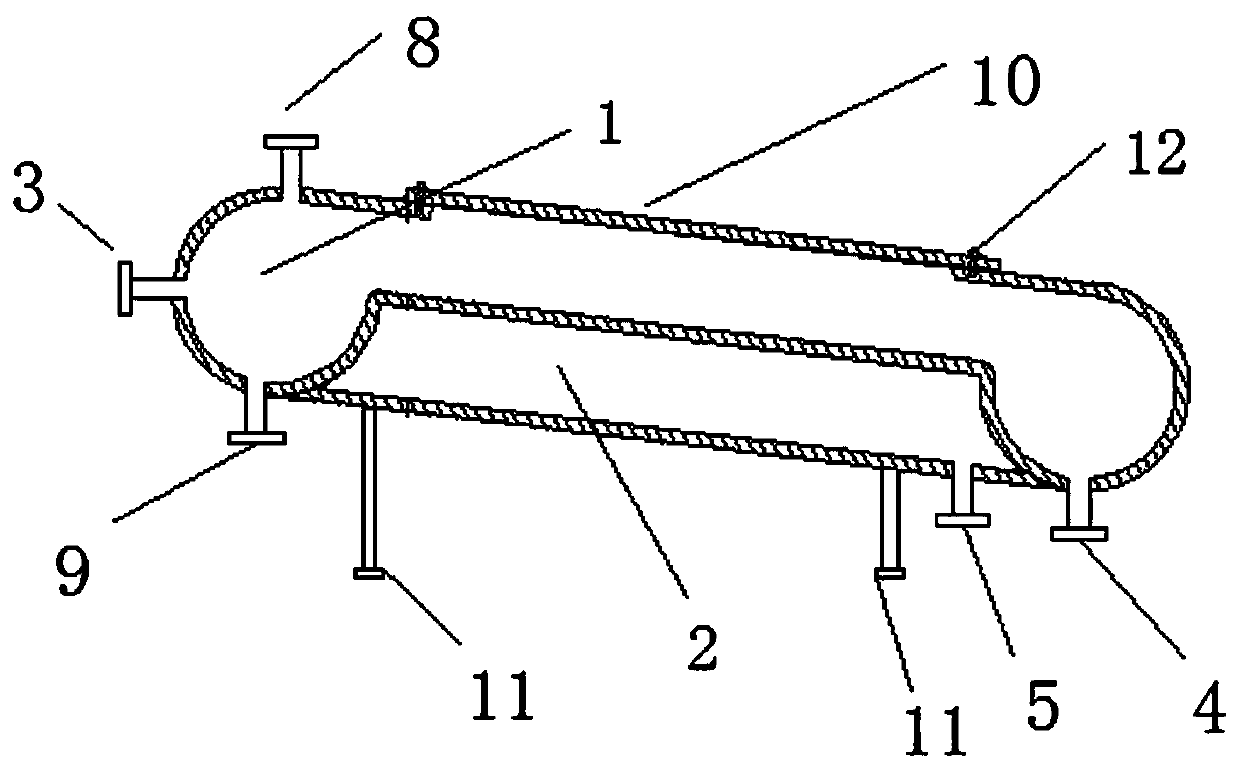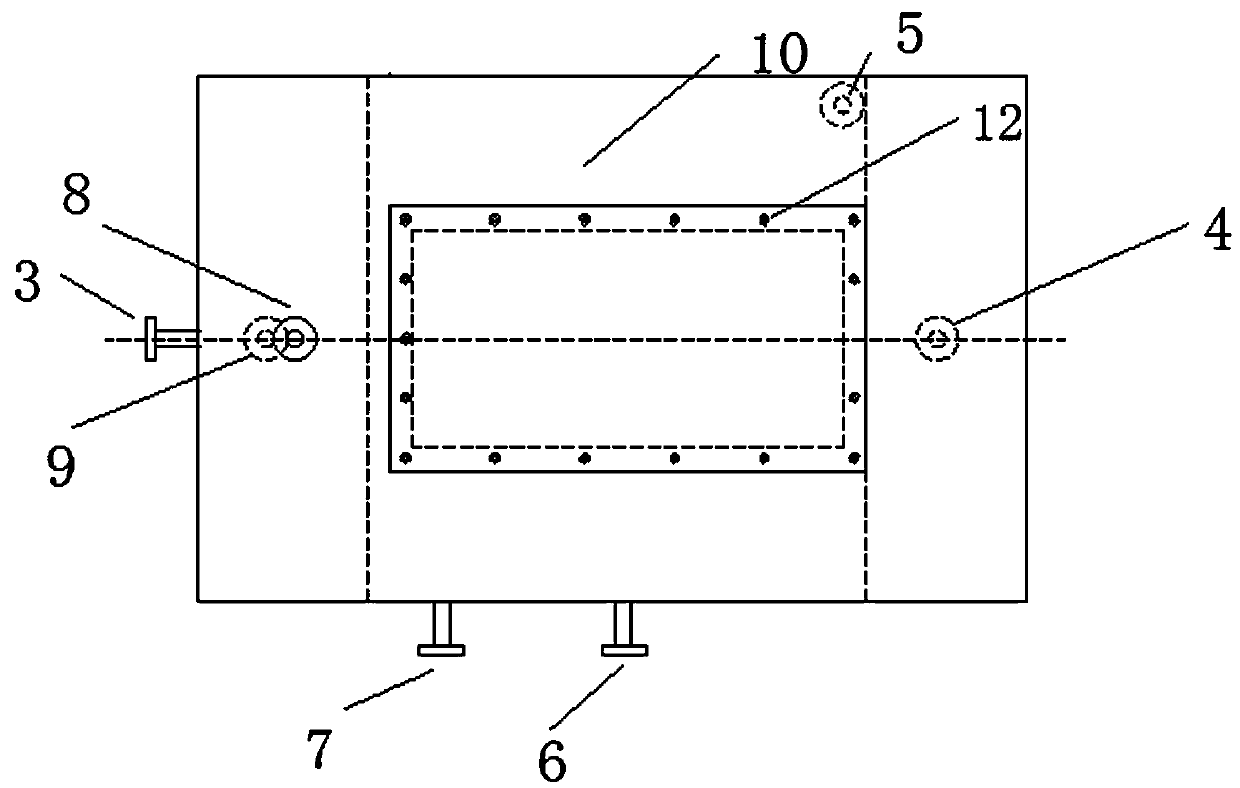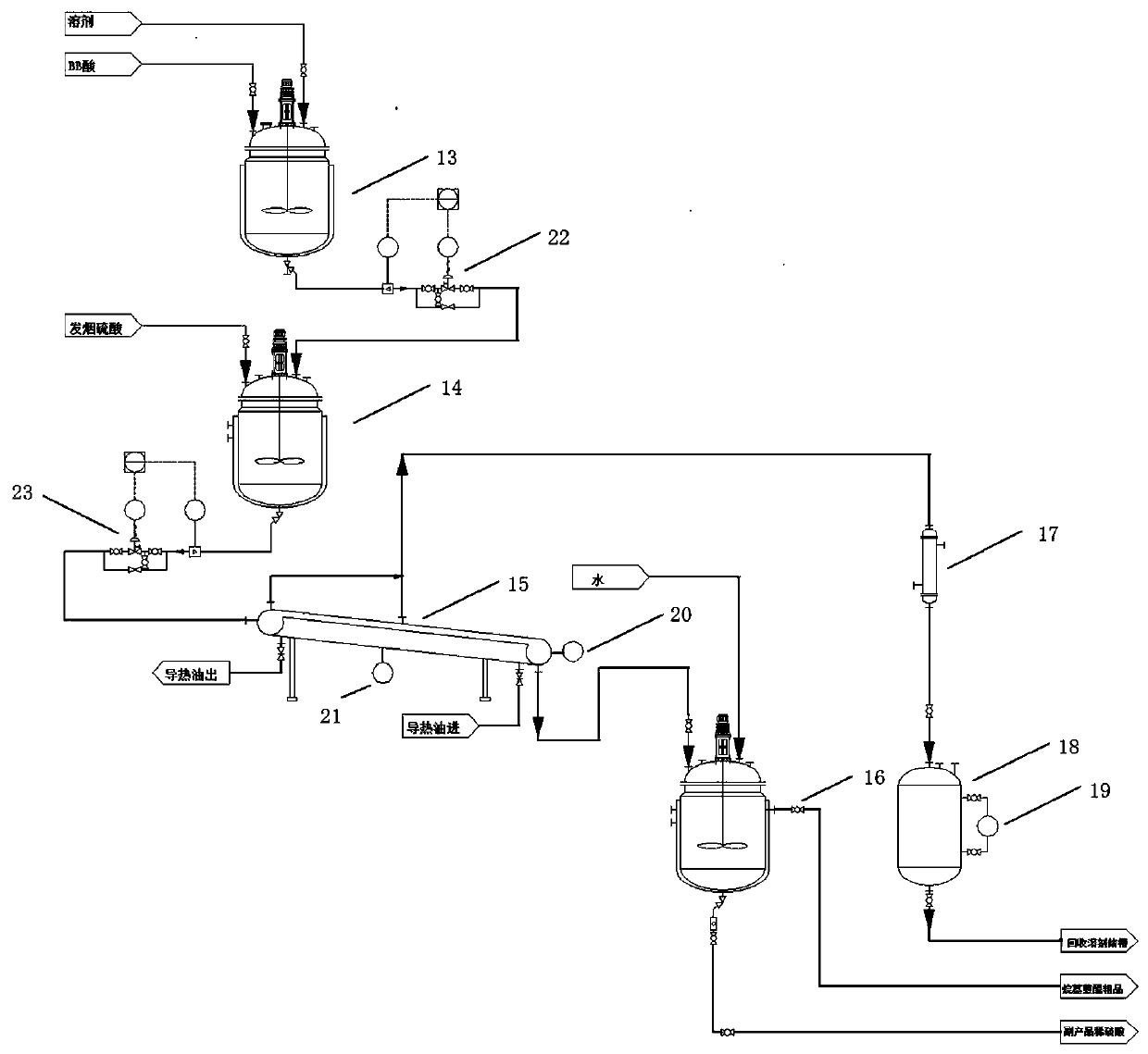Membrane reactor and process for continuous production of alkyl anthraquinone by using same
A technology of alkyl anthraquinone and reactor, which is applied in the production process field of preparing alkyl anthraquinone, can solve the problems of affecting normal production, easy blockage, slow temperature rise of tubular reactor, etc., and achieves continuous production and is not suitable for blockage , Reduce the effect of heating time and reaction time
- Summary
- Abstract
- Description
- Claims
- Application Information
AI Technical Summary
Problems solved by technology
Method used
Image
Examples
Embodiment 1
[0029] Such as figure 1 and figure 2 As shown, a thin-film reactor includes a reaction material chamber 1, a heat-conducting material chamber 2, a reaction material inlet 3, a reaction material outlet 4, a heat-conducting material inlet 5, a heat-conducting material outlet 6, a thermometer socket 7, a gas phase Material outlet 8 and discharge port 9;
[0030] The reaction material cavity 1 and the heat-conducting material cavity 2 are attached to each other; the reaction material inlet 3 and the reaction material outlet 4 are respectively located at both ends of the reaction material cavity 1; the heat-conducting material inlet 5 and the The heat-conducting material outlets 6 are respectively located at both ends of the heat-conducting material cavity 2; the thermometer socket 7 is located on the heat-conducting material cavity 2; the gas-phase material outlet 8 is located at the top of the reaction material cavity 1; The discharge port 9 is located at the bottom of the rea...
Embodiment 2
[0034] equipment such as image 3 As shown, the implementation process: 2-[(4-ethylphenyl)benzoyl]benzoic acid and chloroform enter the No. 1 at the same time at the speed of 9KG / h and 10L / h respectively (weight ratio 1:1.63) Quickly mix in the mixer 13, after mixing, enter the No. 2 mixer 14 and 16.6L / h 20% oleum (2-[(4-ethylbenzene Base) benzoyl] benzoic acid and oleum weight ratio 1:3.5) continue to mix in the No. 2 mixer 14, after mixing, the flow rate 32L / h is adjusted by the No. 2 regulating valve group 23 and enters the thin film reactor 15. The temperature of the heat transfer oil thermometer 21 on the thin film reactor 15 makes the temperature of the reaction liquid thermometer 20 stable at 140 to 145°C; the solvent trichloromethane vapor enters the condenser 17 from the gas phase material outlet 9 on the top of the thin film reactor 15, and the condensed The solvent chloroform enters the recovery solvent receiving tank 18 for use; the reaction liquid enters the wate...
Embodiment 3
[0037] equipment such as image 3As shown, the implementation process: 2-[(4-tert-amylphenyl)benzoyl]benzoic acid and dichloroethane are simultaneously fed at the speed of 7KG / h and 6L / h (weight ratio 1:1.1) Quickly mix in No. 1 mixer 13, after mixing, enter No. 2 mixer 14 and 10L / h fuming sulfuric acid (2-[(4-tert-amylbenzene) Base) benzoyl] benzoic acid and oleum weight ratio 1:2.72) continue to mix in the No. 2 mixer 14, after mixing, the flow rate 22L / h is adjusted by the No. 2 regulating valve group 23 and enters the thin film reactor 15. The temperature of the heat transfer oil thermometer 21 on the thin film reactor 15 makes the temperature of the reaction liquid thermometer 20 stable at 140 to 145°C; the solvent dichloroethane vapor enters the condenser 17 from the gas phase material outlet 9 on the upper part of the thin film reactor 15, and after condensation The solvent dichloromethane enters the recovery solvent receiving tank 18 for use; the reaction liquid enter...
PUM
| Property | Measurement | Unit |
|---|---|---|
| thickness | aaaaa | aaaaa |
| thickness | aaaaa | aaaaa |
Abstract
Description
Claims
Application Information
 Login to View More
Login to View More - R&D
- Intellectual Property
- Life Sciences
- Materials
- Tech Scout
- Unparalleled Data Quality
- Higher Quality Content
- 60% Fewer Hallucinations
Browse by: Latest US Patents, China's latest patents, Technical Efficacy Thesaurus, Application Domain, Technology Topic, Popular Technical Reports.
© 2025 PatSnap. All rights reserved.Legal|Privacy policy|Modern Slavery Act Transparency Statement|Sitemap|About US| Contact US: help@patsnap.com



